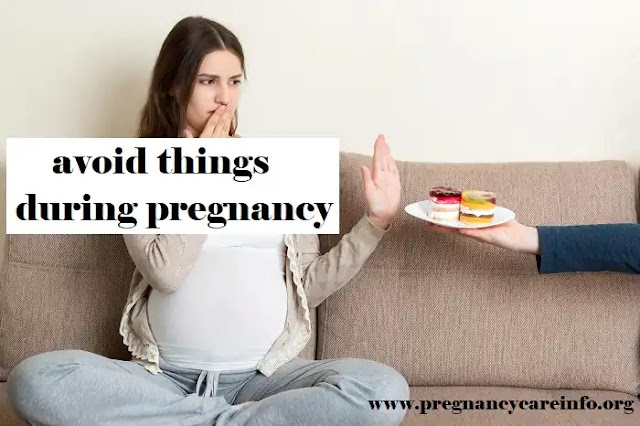What to Avoid During Pregnancy and How Not to Miss It
what avoid during pregnancy
There are a number of things a pregnant woman should be cautious of or avoid things during pregnancy. On this page, you will find a number of products or activities you should avoid or use with caution.
Cats
Toxoplasmosis is a common infection that occurs in most birds and mammals, including humans. The parasite called ‘Toxoplasma Gondi (T. gondii) can be found in cat feces or soil or cat litter. That is contaminated with infected cat feces. The risk of getting toxoplasmosis when you’re pregnant is very low. If you get toxoplasmosis in the early stages of pregnancy, the risk of miscarriage is increased. And it can cause blindness and brain damage in an unborn baby. Signs of toxoplasmosis include mild flu-like symptoms, such as high temperature, sore throat, and aching muscles. However, in most cases, toxoplasmosis doesn’t cause any symptoms. Pregnant women are not routinely screened for toxoplasmosis. It’s therefore important that you know how to prevent infection. And it is on top of avoiding things during pregnancy
Cleaning products
Check the labels of these products to make sure there are no safety warnings for pregnant women. If the labels make a product sound very toxic, it may be better to avoid using it at this time. If you use cleaning products, glues, paint or any other household chemicals, follow the safety directions on the label. Make sure there’s plenty of fresh air. Some mothballs and toilet deodorant cakes contain a substance called naphthalene. Exposure to very large amounts of naphthalene can cause damage to blood cells, leading to a condition called haemolytic anaemia. Some of the symptoms may occur after exposure to large quantities of naphthalene. Are fatigue, loss of appetite, nausea, vomiting, and diarrhoea. Newborn babies are particularly at risk of damaging their blood cells if they are exposed to naphthalene. Which come second of avoiding things during pregnancy
Exercise
It’s great to be active and stay fit while you’re pregnant but check with your midwife or doctor first to make sure there are no health problems to prevent you from exercising. If there are no problems, try to do 30 minutes of moderate exercise, like walking or swimming, on most days of the week. Regular exercise can:
- make you stay at a healthy weight
- help you relax
- do make you stronger and fitter – good for coping with pregnancy, labour and being a parent
- help decrease discomforts like back pain and varicose veins that affect some pregnant women
Food
There are some foods you should not eat when you’re pregnant because they might make you ill or harm your baby. Make sure you know the important facts about which foods you should avoid or take extra care with when you’re pregnant. The best foods to eat are freshly cooked or freshly prepared food.
Alcohol
There is no safe level of alcohol that you can have during your pregnancy. Whether you are planning a pregnancy, already pregnant or breastfeeding, not drinking is the safest option as alcohol can harm your unborn baby.
Breastfeeding
It is very important that you tell your doctor or specialist if you are breastfeeding. Some procedures can involve a radioactive substance being injected into your vein that will take a few days to flush out of your body through your urine. While it is in your body a very small amount of radioactive substance can be passed on to your child through breast milk. Your doctor or specialist and staff where you are having the procedure will give you specific instructions, such as to express and throw away breast milk for a short time after having the scan, so that your child is not exposed to the radioactive substance unnecessarily.
Hair dye
Most research, although limited, shows that it’s safe to color your hair while pregnant. Some studies have found that very high doses of the chemicals in hair dyes may cause harm. However, these doses are massive compared to the very low amount of chemicals that a woman coloring her hair is exposed to. Many women decide to wait to dye their hair until after the first 12 weeks of pregnancy when the risk of chemical substances harming the baby is much lower. If you’re coloring your hair yourself, you can reduce the risk further by making sure that you:
- wear gloves,
- leave the dye on for the minimum time, and
- work in a well-ventilated room.
Highlighting your hair, by putting the dye only onto strands of hair, also reduces any risk. The chemicals used are only absorbed by your hair, and not by your scalp or bloodstream. Semi-permanent pure vegetable dyes, such as henna, are a safe alternative. Do remember that pregnancy can affect your hair’s normal condition. For example, your hair may:
react differently to coloring or perming than it usually does, and become more or less absorbent, frizzy, or unpredictable. It’s always a good idea to do a strand test first, using the hair dye or treatment that you intend to use. Speak to your hairdresser for advice.
